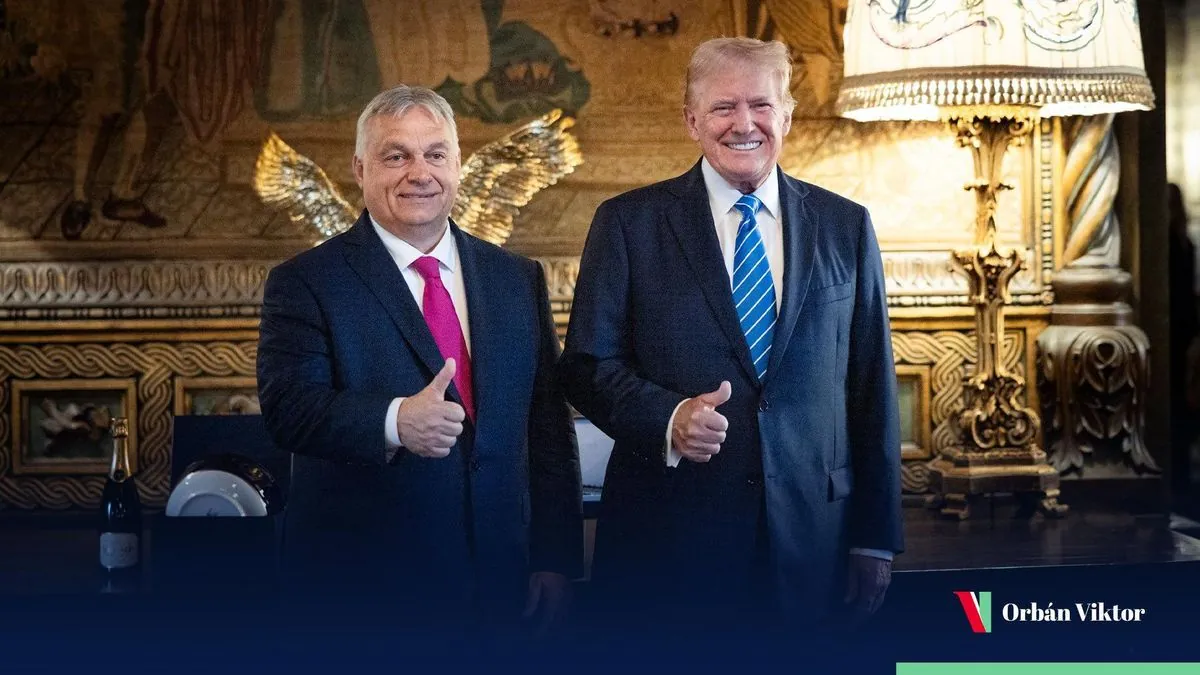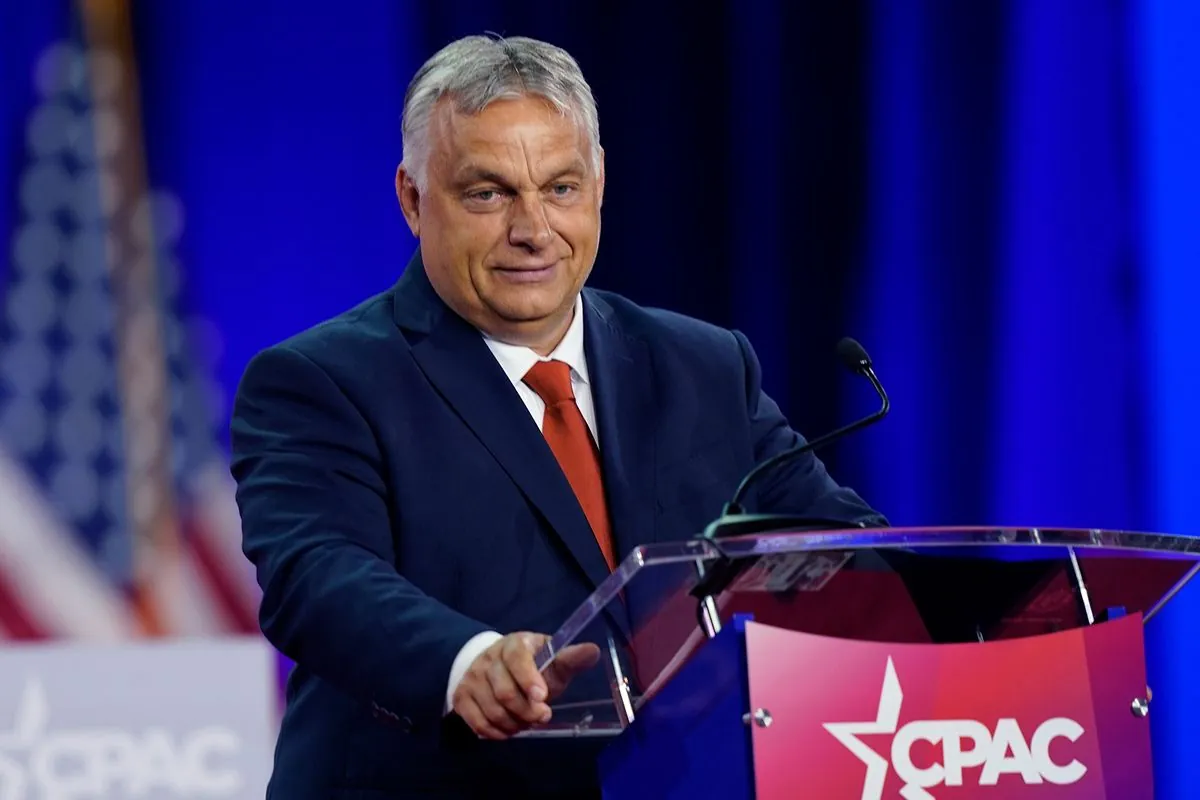Trump's Misinterpretation of 'Strongman' Reveals Admiration for Autocrats
Former President Trump's repeated praise of Viktor Orbán as a "strong man" highlights his misunderstanding of the term "strongman" and raises concerns about his approval of autocratic leadership styles.

In a recent debate with Vice President Kamala Harris, former President Donald Trump once again demonstrated his admiration for Viktor Orbán, the Prime Minister of Hungary. This praise, however, reveals a concerning misinterpretation of the term "strongman" and raises questions about Trump's understanding of democratic values.
During the debate, which took place just two days ago, Trump responded to Harris' criticism by citing Orbán's support:
"Viktor Orbán, one of the most respected men — they call him a 'strongman.' He's a tough person. Smart. Prime Minister of Hungary. They said why is the whole world blowing up? Three years ago it wasn't. Why is it blowing up? He said because you need Trump back as president. They were afraid of him."
This statement highlights Trump's frequent misuse of the term "strongman," interpreting it as a compliment rather than a criticism of autocratic tendencies.

Orbán, who has been Hungary's Prime Minister since 2010, has faced significant criticism for undermining democratic institutions in his country. Under his leadership, Hungary has been reclassified as a "hybrid regime" by Freedom House and an "electoral autocracy" by the European Parliament. These designations reflect concerns about the erosion of democratic norms and the concentration of power in Orbán's hands.
Trump's admiration for Orbán is not an isolated incident. Throughout his political career, he has consistently praised leaders often described as autocrats or strongmen. For instance, in May 2024, Trump referred to Orbán as a "very tough guy" and a "strongman" during a speech in The Bronx. Similarly, he has used terms like "strong" and "tough" to describe other controversial figures, including Chinese President Xi Jinping.
This pattern of praise extends back to Trump's pre-presidential days. In 2008, he described Senator John McCain as "a very strong guy, a very strong leader," and in 2003, he praised Arnold Schwarzenegger as "a strong man who's made really some incredibly good business decisions."
Trump's apparent confusion between "strongman" and "strong man" is particularly concerning given Hungary's democratic backsliding under Orbán's rule. The country has seen increased control over media, anti-immigration policies, and constitutional changes that have consolidated power in the hands of the ruling party.
The European Union has taken notice of these developments, invoking Article 7 against Hungary in 2018 due to rule of law concerns. Despite these issues, Trump continues to hold up Orbán as an example of effective leadership.
This misunderstanding – or perhaps deliberate misinterpretation – of the term "strongman" raises serious questions about Trump's views on democratic governance and his potential future actions if he were to return to power. As the 2024 election approaches, voters must carefully consider the implications of a leader who appears to admire autocratic tendencies and misinterpret criticism as praise.


































